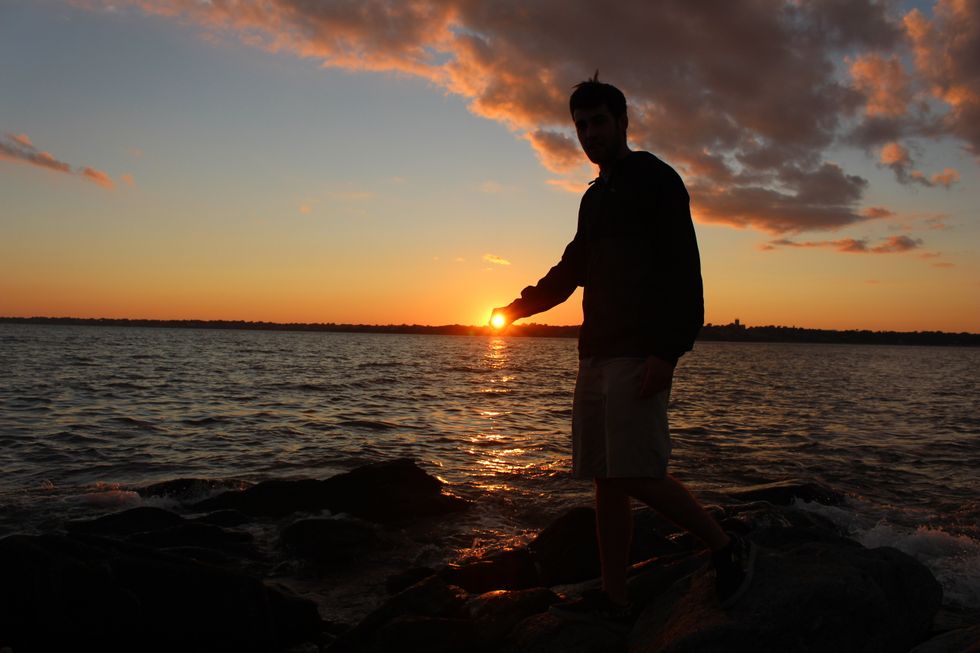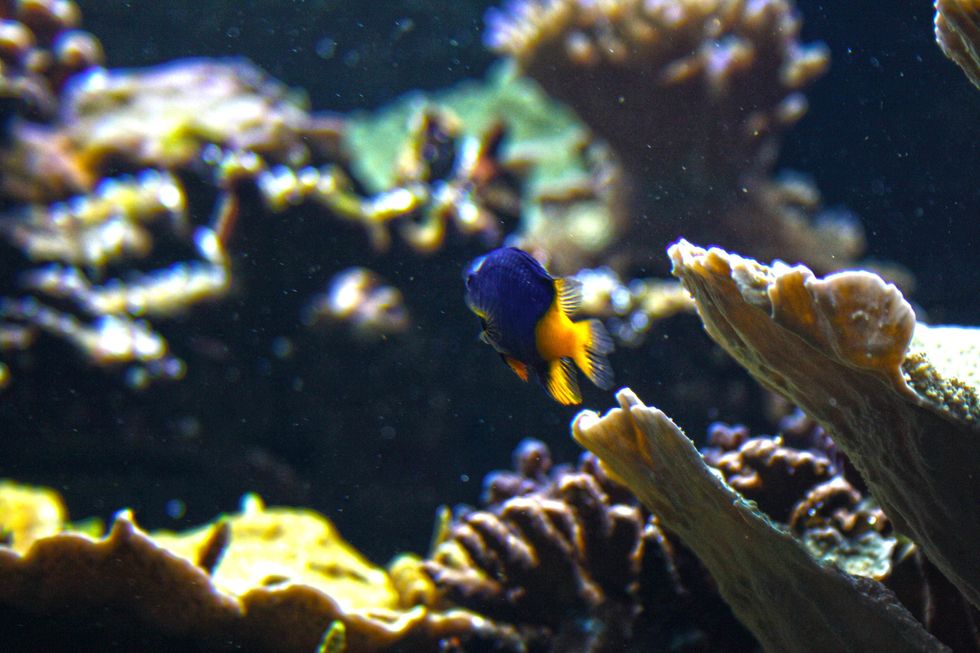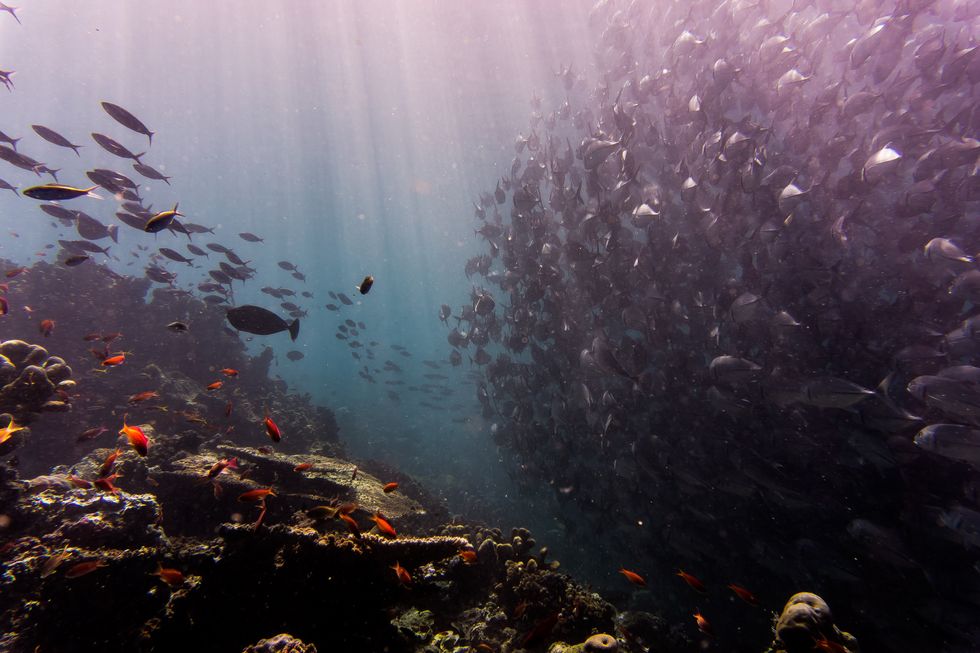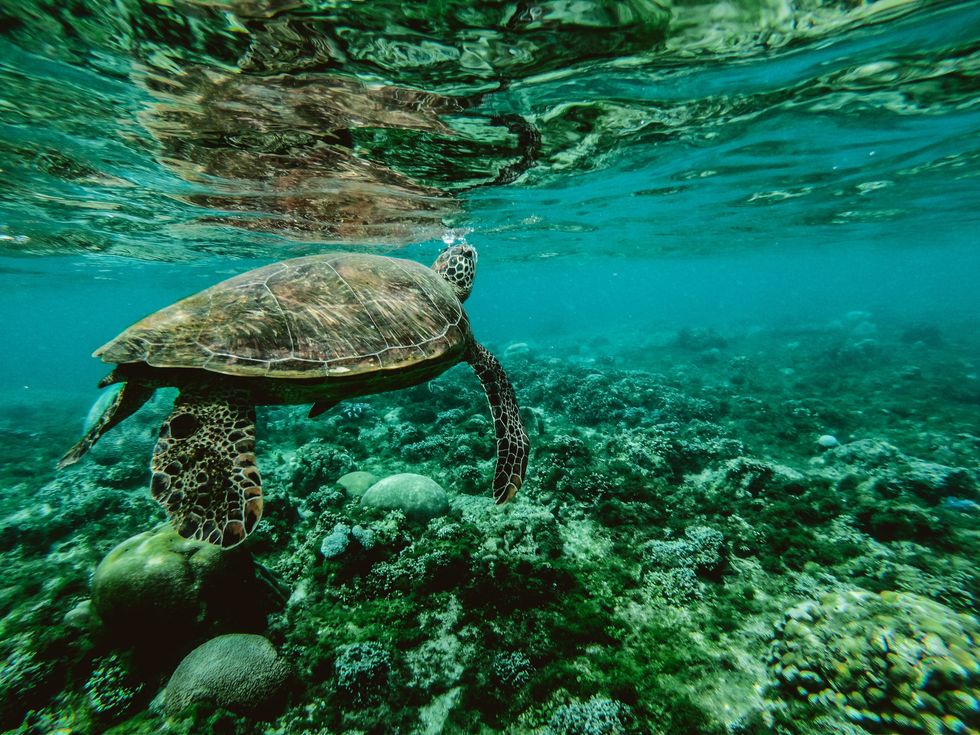If most humans continue to waste and destroy, not only our marine ecosystems but also the number of carbon footprints we are producing, we may not have enough water or food for generations to come.
A big issue that controls the water and how ecosystems thrive is Ocean Acidification. Ocean Acidification is when carbon dioxide is absorbed into the ocean. Now, this is good on a natural level for living organisms in the ocean to breath and survive, but too much of a good thing becomes a bad thing.
Time to get all scientific... Pull out your goggles and periodic tables!
As CO2 breaks down, it forms carbonic acid and hydrogen ions. Those hydrogen ions then bond with carbonate ions to down bicarbonate (controls and measures/maintains acidity; like in humans). The carbonate ions then enable marine life to build and maintain their structures such as coral and shells, but when levels are increased (too much CO2 into the ocean), they do more harm than good.
A big example of how CO2 is disrupting the ecosystem is the Great Barrier Reef. In recent years, more than half was presumably already dead, with no way for marine life to live inside.
Coral bleaching is when warm ocean water practically suffocates corals that contain algae to survive, host and feed organisms. If they receive enough oxygen, they can survive. If not, the organisms will die.
A video from National Geographic gives a good representation of coral bleaching actually happening and it just shows this happens to millions and millions of corals not just yearly but in a matter of months.
This doesn't mean everything inside our oceans is the most important, because even outside of the water, we are still destroying the very land we walk on to try to be happier. Destroying, building and genetically changing everything around us will just cause us to fend for our lives. By the wrong people, we have been led to believe we were allowed to do whatever we want with no consequences, but there are plenty of people out there will prove that wrong INSTANTLY (like me).
To prevent the extinction of marine life, ecosystems and necessities for us humans to survive, we must take the steps to form healthier habits and make better choices to reduce our carbon footprints. By reducing your own energy, changing your eating habits (eating less meat), buying habits (fresh markets), disposing of waste properly and making better connections, it means we can live longer, happier and healthier lives and so can all organisms around us.




















